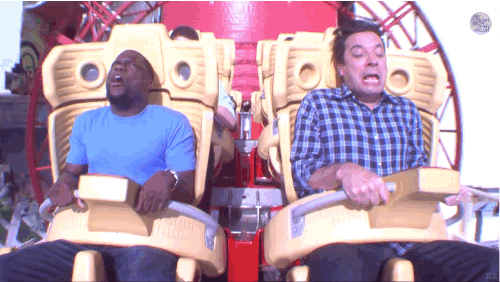
It's no secret that the agriculture community sprays various chemicals on their crops to avoid pests, weeds, and other insects. But, to what extent do these sprays actually help the crops? And do they damage other organisms around them? With more companies spraying crops despite the protest of the anti-GMO communities and others, how can we know what is or is not safe to consume? What is or is not safe for our environment? And, what is safe for our lovely bees?
Welcome to Ted Talk 2.0 brought to you by Brittany Sauter. On this rollercoaster ride, we will be talking about spraying our crops with pesticides and its various forms of herbicides, insecticides, fungicides, and any other -cides out there.

Insecticides, herbicides, and fungicides all get their names from what they kill and fall under the overall category of pesticides (1). The ending of all these, -cide, means "killer" or "act of killing", and the word at the beginning is what it kills (2). These chemicals do attempt to kill, but they also can be a massive stressor for various other plants and animals that they don't mean to kill. In my previous blog post, I discussed pollination and bees, and how spraying our crops causes stress for the bees and kills them if they are sick, as various chemicals are used in different categories of pesticide sprays, making them affect more than just the target pest of interest. And to make matters worse, not only are there various chemicals used in sprays, but they also have different effects when mixed with other chemicals. This all happens without us fully understanding all the effects those chemicals will have on nature. The only goal of pesticides is to kill various pests and stop the destruction of agriculture crops and dandelions from entering perfectly groomed lawns (1).

Even though pesticides have been around for a long time, the first chemical synthesis was done to create dichlorophenyltrichloroethane, or most popularly known as DDT (2). DDT was first synthesized in 1874 but was known to have insecticide benefits until 1939 (2). The man who discovered the insecticide usage of DDT even got awarded the Nobel prize in 1948 in Medicine and Physiology due to saving humans from malaria and typhus (1). Little did we all know, the damage that DDT would do to the environment to get it banned internationally in 2001 (3). DDT was banned based on several factors: environmental impact, cancerous properties, and the way it breaks down leaves lasting effects for future generations (3). Even though DDT has been banned, spraying our crops has become normalized. Most of us driving through suburbia or by agriculture areas can see trucks spraying crops, trees, or even people's lawns. Spraying lands is usually done for different reasons but the main purpose is to get rid of unwanted pests that can be actually beneficial to various ecosystem developments. Why though do we spray our crops with various pesticides when we do not know their lasting effects on both humans and the environment?
There have been so many chemicals banned from being used in pesticides and also pesticides that have been banned overall; however, this changes from country to country. Certain countries are more cut-throat about what chemicals can be used, whereas other countries let anything occur. Even chemicals that have been on the market for a while are now being discovered to have long-lasting health effects as a carcinogen and environmental effects, such as glyphophosphate (4). Glyphophosphate was first synthesized in 1950 and was found to have herbicide properties in 1970 and now is being discussed as a potential toxic to human health and the environment (4).

Spraying our crops with these chemicals may help our crops grow potentially, but they cause a lot more harm too. They damage the environment, which in turn affects the animal's health in that ecosystem (20> When crops are sprayed, animals interact with that environment, whether it is passing through or stopping and grazing the sprays interact with them. Also, these chemicals can last in the environment for generations verifying that even if we stop spraying chemicals on crops the lasting effects are still here (3).

I do not know if all pesticides are bad; however, it is bad to remove vital organisms from an ecosystem due to what we as humans label as "pests." Some plants, organisms, bugs, and other animals play vital roles in not only pollination but also maintaining soil health and biodiversity of an area. It is each organism's job in an ecosystem to find a niche and occupy it as long as possible to stay alive. This is what the "pests" are doing.

Thank you for joining another Ted Talk brought to you by Brittany Sauter. This rollercoaster has finally come to an end; thanks for reading about how spraying our crops damages parts of our vital environment.
References
1. https://en.wikipedia.org/wiki/DDT#International_usage_restrictions2. https://www.britannica.com/technology/agrochemical
3. http://www.panna.org/resources/ddt-story
4. https://survivorstable.com/2018/06/05/why-is-a-4-decade-old-pesticide-back-in-the-news-the-story-of-glyphosate/
- B. A. Sauter


0 comments:
Post a Comment